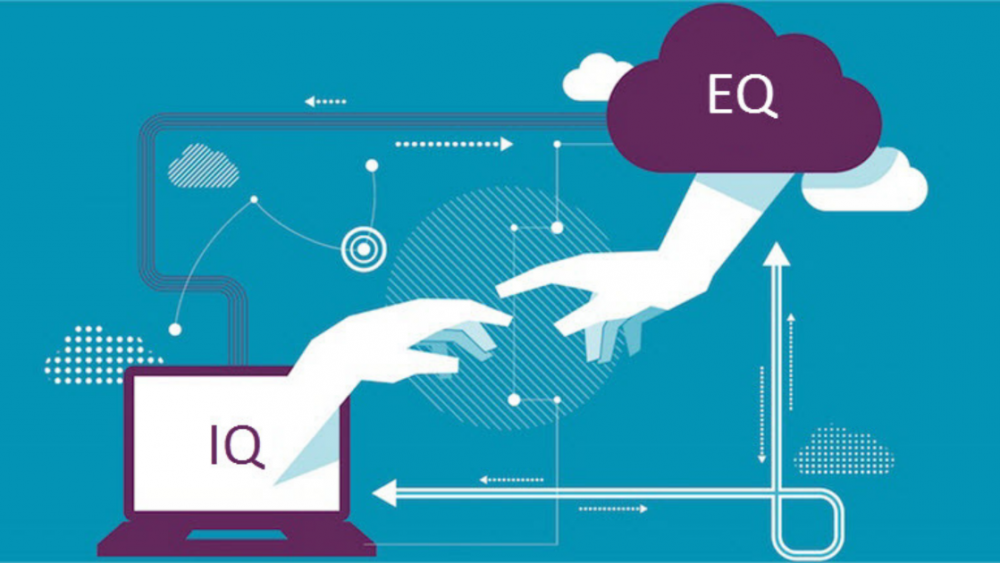EQ vs IQ: Which One is Better for Your Workplace?
Have you ever been in the situation where you hired a candidate with exceptional skills and qualifications, but later regretted it because they fared poorly in team environments and overall just had bad synergy within your workforce?
Well that could be because you may be favouring a candidate’s IQ over their EQ. What’s EQ exactly? EQ stands for “Emotional Quotient” . It measures a person’s adequacy in areas like self-awareness, empathy and dealing sensitively with other people.
But why is that so important for a workforce? Goleman’s study of 200 companies revealed that EQ accounts for 66% of a candidate’s performance difference between individuals.
Essentially, candidates with higher EQs would perform better than candidates with a high IQ, even if their technical skills were not at the same level, compared to their smarter counterparts.
EQ vs. IQ in the Workplace: What Employers Need to Know
Emotional Intelligence (EQ) and Intelligence Quotient (IQ) are two key factors that influence workplace success, but they play distinctly different roles. Understanding these differences can help employers make smarter hiring decisions, improve team dynamics, and build a more resilient organization.
What is IQ?
IQ, or Intelligence Quotient, measures cognitive abilities like problem-solving, logical reasoning, and analytical thinking. It’s a critical factor for roles that require technical expertise and precision.
Key Characteristics of IQ in the Workplace:
- Analytical Thinking: Excels in solving complex technical problems.
- Mathematical and Linguistic Skills: Supports roles like engineering, data analysis, and research.
- Logical Reasoning: Drives decision-making through structured approaches.
What is EQ?
EQ, or Emotional Quotient, reflects a person’s ability to recognize, understand, and manage emotions—both their own and others’. It encompasses skills such as empathy, social awareness, and relationship management.
Key Characteristics of EQ in the Workplace:
- Self-Awareness: Understanding personal strengths and weaknesses.
- Empathy: Fostering deeper interpersonal connections.
- Adaptability: Managing emotions during change and setbacks.
EQ vs. IQ: How They Impact the Workplace
|
Factor |
High IQ Traits |
High EQ Traits |
|
Core Abilities |
Logical reasoning, problem-solving, technical skills. |
Empathy, self-regulation, relationship management. |
|
Job Fit |
Roles requiring technical expertise. |
Roles demanding teamwork, leadership, and communication. |
|
Problem Solving |
Analytical, focused on logical solutions. |
People-oriented, considers emotional and relational impacts. |
|
Communication Style |
Data-driven and technical. |
Empathetic, skilled at interpreting non-verbal cues. |
|
Leadership |
Strategic planning, informed decision-making. |
Motivating teams, building trust, and inspiring action. |
|
Resilience |
Knowledge-based adaptability. |
Emotionally grounded, thrives during uncertainty. |
Why EQ Often Outweighs IQ in the Workplace
While IQ ensures technical proficiency, EQ shines in areas that require interpersonal finesse and emotional understanding. Here’s why EQ is often the differentiator:
- Stronger Relationships: High EQ fosters better collaboration and builds trust among team members.
- Effective Leadership: Leaders with strong EQ inspire loyalty, motivate teams, and navigate challenges effectively.
- Higher Engagement: Empathy and emotional support lead to improved employee satisfaction and retention.
- Adaptability to Change: EQ enables employees to remain calm and productive in dynamic environments.
Striking the Right Balance: EQ + IQ
For organizations, the ideal workforce combines both EQ and IQ:
- Technical Roles: A high IQ ensures technical excellence, but EQ enhances teamwork and communication.
- Leadership Positions: While EQ is essential for inspiring and guiding teams, a solid IQ is needed for strategic decision-making.
How to Enhance EQ in Your Workforce
Building a high-EQ organization requires intentional efforts:
- Invest in Training: Offer workshops on empathy, active listening, and conflict resolution to nurture emotional intelligence.
- Rethink Hiring Practices: Use behavioral assessments and EQ-focused interview questions to evaluate candidates’ emotional skills alongside their technical abilities.
- Promote a Supportive Culture: Recognize and reward behaviors that demonstrate high EQ, such as collaboration, adaptability, and effective communication.
Integrating EQ in the workforce
EQ affects a person’s ability to build relationships at work which are essential in a team, it also helps people transition into leadership roles and build a positive work environment. However the biggest benefit is that high EQ individuals recover from failure much faster. They possess the ability to self reflect, learn and adapt to changing environments and circumstances.
As employers, you may be wondering, how do you screen for EQ candidates? The authors of The Emotionally Intelligent Workplace, highlight key points that alleviate an average candidate to a super performer, these are: Organizational Awareness, Self-Confidence, Achievement Drive, Influence and Team Leadership. Creating an interview routine and process that incorporate behavioral questions around these points would be a great start.
Finding candidates with EQ
The Very Well EQ Test and Psychology Tool’s EQ Test are also good alternatives, however they are probably not something every candidate would be willing to take as it requires a significant amount of time to complete. These should be reserved for the final rounds of an interview.
A quicker solution would be to incorporate these questions into a pre screen questionnaire, this way you will be able to assess a candidate’s EQ potential quickly even if their technical skills are lacking, allowing you to make better hiring decisions. As recruiters may be rejecting a candidate if their skills aren’t up to scale but this may be causing you to overlook high performing candidates
Finally, it’s not enough just to hire emotionally intelligent candidates. Like any successful workforce , they need to be nurtured through character education and building a company culture that emphasizes empathy. It’s important to remember that these candidates are team players and thrive with a robust support system.




Comments are closed.